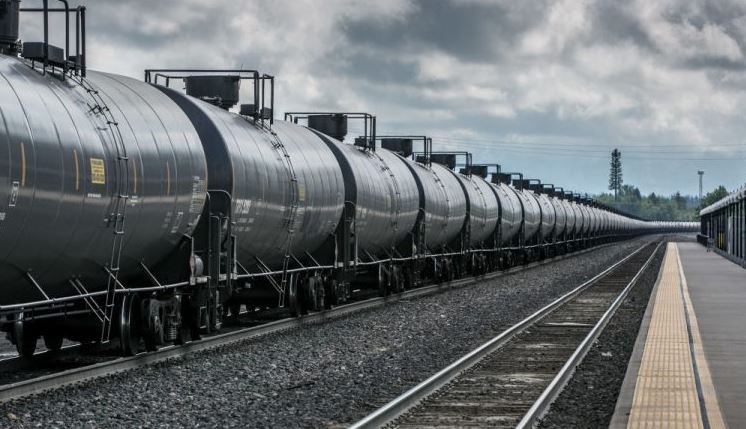CLEARSKYAMERICA.COM
August 11, 2022
When planning on how to reduce the environmental impact that petro chemicals have on the environment it is not always easy to see the big picture. Fertilizers overall environmental impact is one of those issues where there are other factors to consider.
I read an article recently that stated fertilizer shippers are “pressuring the Biden administration for transportation-related changes they say will help lower their costs and make them more competitive in world markets.” Agricultural Marketing Services (AMS) made a request that was a follow-up to President Biden’s July 9, 2021, executive order aimed at promoting competition throughout the U.S. economy. According to The Fertilizer Institute “half of all food grown in the world is made possible by fertilizer which represents companies involved in all aspects of the U.S. fertilizer supply chain. The three major building blocks that go into making it: nitrogen, phosphorus and potassium.” “Our industry is essential to ensuring that farmers receive the nutrients they need to enrich the soil and, in turn, grow the crops that feed our nation and the world,” wrote TFI President and CEO Corey Rosenbusch.
Rosenbusch stated that most fertilizer moved via rail and that rail rates to ship anhydrous ammonia (a source of nitrogen) have increased 206% over the last 20 years. “Beyond rail rates, disruptions in rail service have limited the ability to move fertilizer. Currently, rail carrier cycle times are far worse than they were last year. Therefore, the industry is unable to ship as much fertilizer in the same time frame, which negatively impacts domestic production facilities that have limited site storage.”
I have many questions including why do we need to produce so much petroleum based fertilizers, insecticides, and herbicides in the first place? Why are we concerned about “competing on the world market”? How does it make any sense to produce these products here in the United States and then use truck, rail, and maritime shipping to export these products half way around the world when nearly every region in the world has their own drilling, refining, manufacturing, and distribution?
Using these products right where they are produced is bad enough but now, due to corporate greed and the never ending desire for more profits, we feel the need to ship them half way across the globe burning even more diesel fuel, hurting the environment even further, and taking up more capacity in our already strained transportation industry. How about letting China, India, Russia, and every other country produce their own fertilizer and use it right in their own backyard? Why would we ever transport fertilizer more than 500 miles?
Many related industry groups are also complaining about the unprecedented truck driver shortage and are asking the Biden administration to help support expanding the truck driver workforce, citing estimates from the American Trucking Associations that 80,000 driving jobs went unfilled in 2021.
Here’s a thought. Stop exporting any of this stuff and you immediately help with the truck driver shortage, the rail industry service challenges, and the log jam of container traffic trying to come and go from United States ports.
Another half baked idea that both the American Farm Bureau Federation (AFBF) and the Agricultural Retailers Association (ARA) have is allowing trucks carrying more than the standard legal limit of 80,000 pounds on our highways. This would require new or modified trucks and trailers with additional axles to be able to handle the weight. Undoubtedly if trucks could carry and additional 20,000 pounds our roads would quickly be abused and full of pot holes. Maintenance and road building costs would skyrocket.
I spent 25 years in the semi trailer leasing and manufacturing industry so I am qualified to make these statements. 100,000 pound trucks WILL destroy our roads. Don’t believe me or my experience? Come out to our farm in North Texas and I’ll show you the damage done by overweight oil and aggregate hauling trucks that are constantly driving on our black top farm to market road.
But, in contrast to my claims on road damage here is what the American Farm Bureau Federation claims. “This would make U.S. farmers and businesses more competitive and reduce the number of trucks needed to haul the same amount of goods,” according to AFBF. “The U.S. Department of Transportation implementing this change would reduce infrastructure wear and tear, enhance capacity and benefit the environment by reducing vehicle miles traveled.” ARA commented that the railroad industry “continues to oppose this as they view it as increased competition.”
As I have stated numerous times articles I have written I am not a fan of the “Green New Deal” and do not want to eliminate fossil fuels. Solar panels and wind farms will never give us enough energy to wean us off fossil fuels. However, we do need to think about how we can curtail our usage and plan for the future. Reducing the manufacturing of fertilizers and the globalization of their sales and distribution is a no brainer and could save us millions of gallons of oil and chemicals.
And before the naysayers claim we “cannot feed the world” let me assure you there are other, much healthier ways, to grow agriculture products vs. the plow, glyphosate, plant, harvest, repeat cycle that is the norm for Big Corporate Ag. That is the subject for another article.
